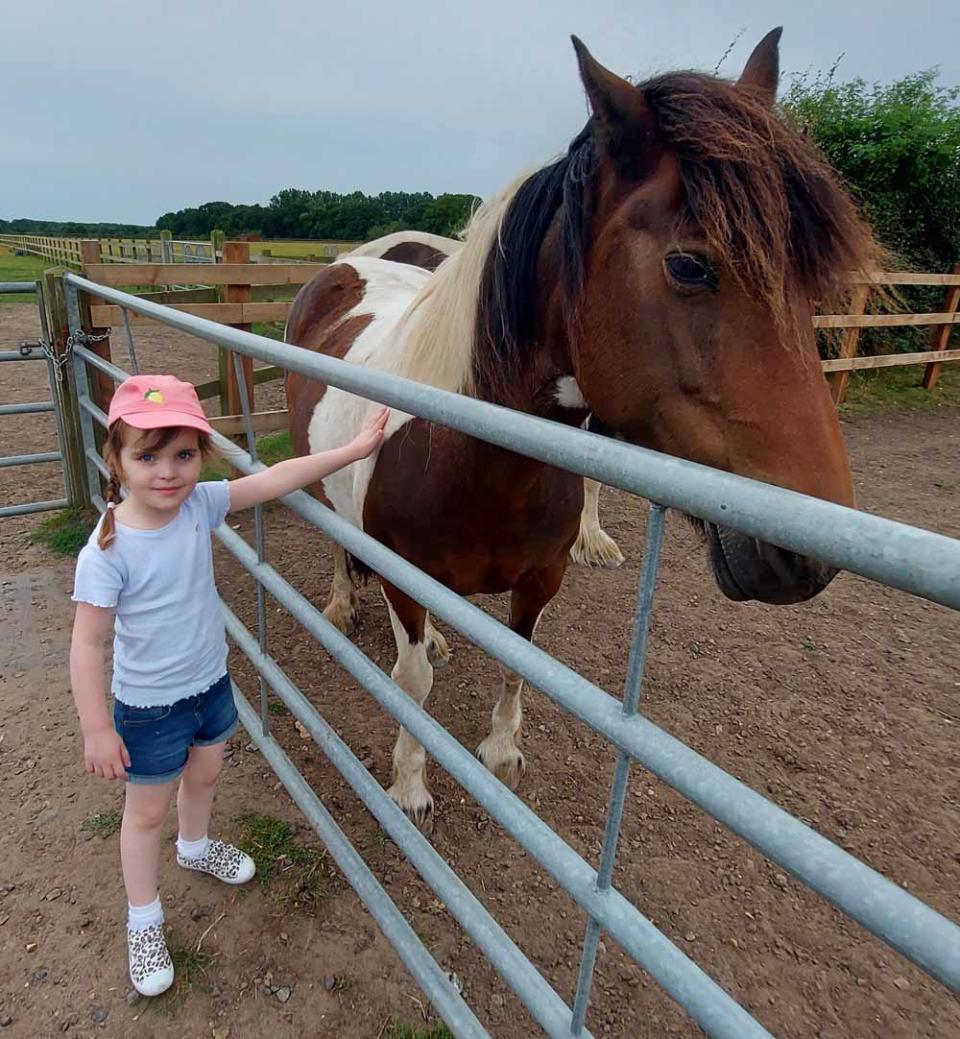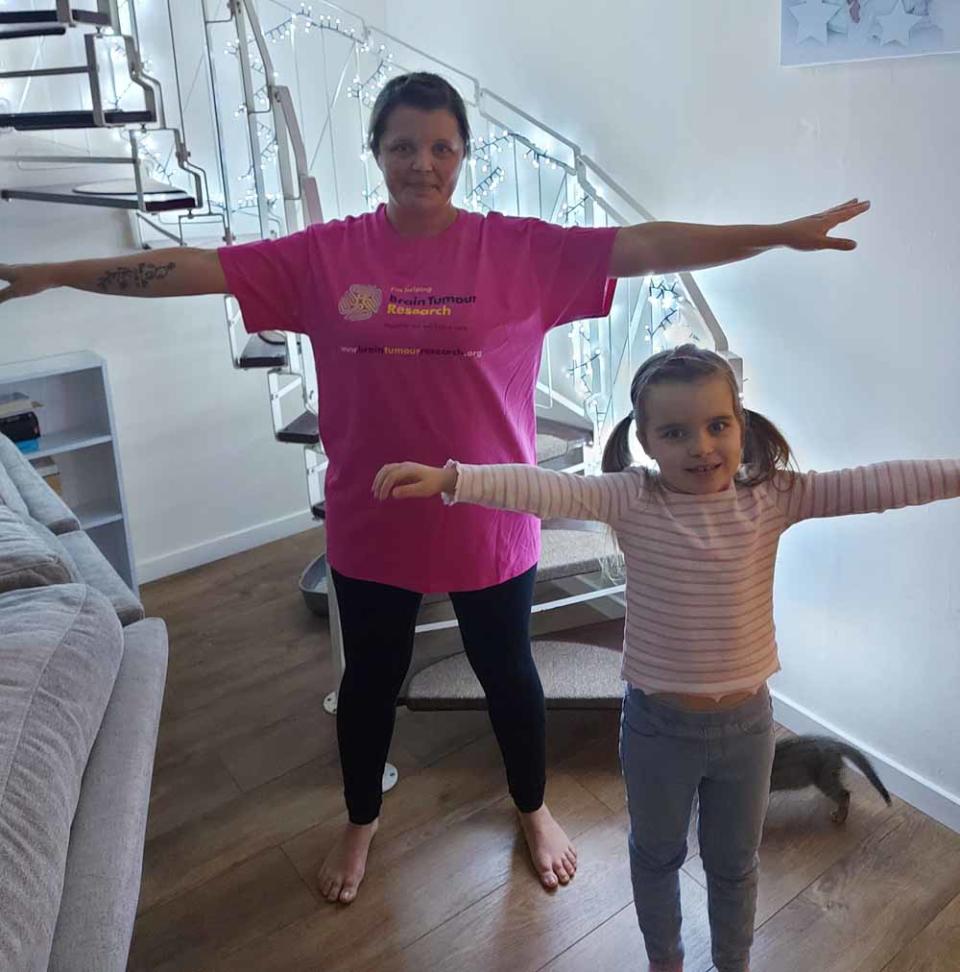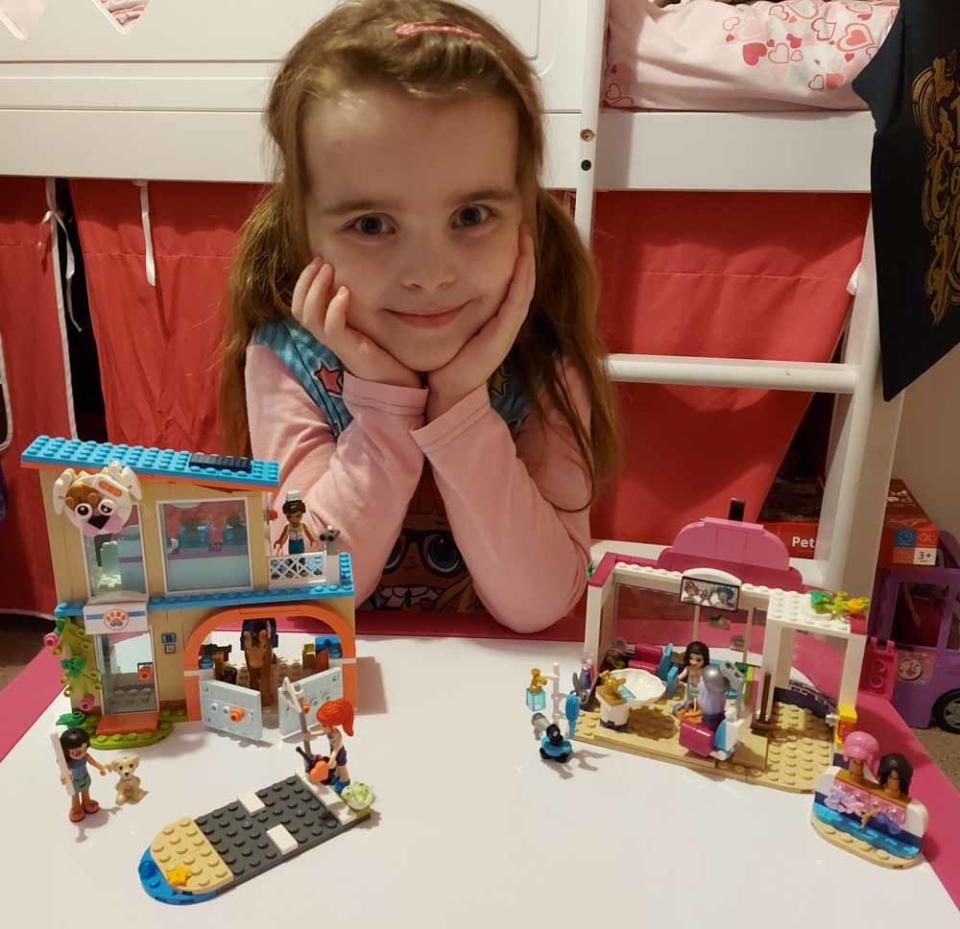Mum who thought her six-year-old daughter had a co-ordination disorder discovered she was constantly falling over because she had a brain tumour
A mum who thought her daughter had the co-ordination disorder dyspraxia after she kept falling over, so was blindsided when the six-year-old was diagnosed with a brain tumour, is delighted by her progress just two months after surgery.
Chloe Smith, 31, a field care supervisor for a community care agency, kept having to collect her little girl, Evie-Mai, early from school, after she fell over and hurt herself or bumped into things.
Convinced she had dyspraxia, the mum, of Lowestoft, Suffolk, was shocked to the core when an MRI scan revealed a mass on Evie-Mai’s brain.

Chloe, whose partner, Gary Hale, 27, is currently on sick leave from work, said: “It’s every parent’s worst nightmare.
“Evie-Mai has been quite clumsy ever since she was a toddler, but I never suspected it could be because of something so serious.
“I thank my lucky stars that my little girl is now recovering.”

The nightmare began in November 2020 when Evie-Mai – Chloe’s daughter from a previous relationship – seemed to be constantly having bumps and scrapes.
She said: “Evie’s clumsiness was getting worse.
“I would get phone calls nearly every day from her school asking me to pick her up because she’d fallen over or hurt herself.”
She added: “She was constantly bumping into things, so I decided to book a doctor’s appointment.”
It was soon clear Evie-Mai’s situation could be serious, when the GP sent them straight to the hospital.
Chloe said: “We were seen by a consultant at the hospital who said he would recommend Evie be given an appointment for an MRI scan.”

She added: “The MRI scan was scheduled for March 2021 and there was talk of her possibly having dyspraxia, so I wasn’t too worried.
“When the news came through following the scan results that there was actually a mass on her brain, I was knocked for six.”
Evie-Mai was diagnosed with a low-grade cystic pineal tumour which, according to cancer charity Macmillan, is a type of benign brain tumour. It starts in or around the pineal gland in the centre of the brain.

Chloe said: “It was devastating and very hard to keep positive because of the nature of it all.
“The potential for what could go wrong goes way beyond what’s possible to comprehend as a parent.
“We felt a slight relief to hear that the tumour wasn’t cancerous, but we knew we had a long road ahead.”
She added: “At first, doctors monitored the tumour before booking Evie in for surgery.”
On September 28, 2021, Evie-Mai had a 10-hour operation at Addenbrooke’s Hospital in Cambridge to remove the mass from her brain.
Chloe said: “It was a long, anxious day of pacing around the waiting room, just waiting to hear how she was doing.”

She added: “When we were told that she was finally out of surgery, Gary and I breathed out for what felt like the first time since that morning.”
Surgeons had successfully removed 95 per cent of the mass, making the incision at the base of Evie-Mai’s neck – meaning most of her hair did not need to be shaved.
Chloe said: “The surgeons were unable to remove the other five per cent.”

She added: “So, consultants are now assessing whether Evie may need further surgery down the line.”
For now, according to Chloe, doctors are happy with the results.
She said: “Seeing my daughter wake up in the hospital bed, I wanted to cry.”
She added: “She is such a little fighter. We had bought her some Lego to keep her entertained in hospital, but once she clapped eyes on it we couldn’t get her to rest.
“All she wanted to do was build her Lego. I would get her to lie down for a nap, then leave the room and return only to find that she had collared a student nurse to help her build more things from the Lego.”
Evie-Mai was so resilient she was discharged from hospital just four days after her operation.

Since then, the six-year-old has been recovering at home and has even been doing daily star jumps with her mum to raise money for Brain Tumour Research during November.
Chloe said: “Doing 100 star jumps a day to support the charity has been a lot of fun, even if I can barely walk now that the month is up!
“We generally do them in the evening. Sometimes, my partner Gary joins in and Evie takes part when she feels up to it.”
She added: “She counts out loud whereas I try to count in my head, so it can get a bit confusing and sometimes seems never-ending, but it’s a really good laugh, especially with our new kitten, Mali, getting under our feet.
“After what we’ve been through, it’s good to have something positive at the end of it.
“We’re incredibly grateful to Brain Tumour Research for their support, it’s meant the world to our family.”
Brain tumours kill more children and adults under the age of 40 than any other cancer yet, historically, just one per cent of the national spend on cancer research has been allocated to this devastating disease.
Now Brain Tumour Research is calling for a national annual spend of £35 million in order to improve survival rates and patient outcomes, in line with other cancers such as breast cancer and leukaemia and is also campaigning for greater repurposing of drugs. For more information, visit www.braintumourresearch.org
Watch: Teacher returns to lessons one day after having brain tumour removed

